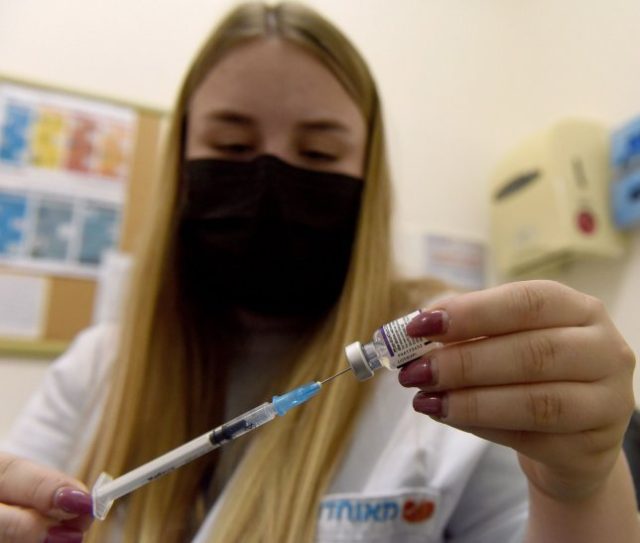April 14 (UPI) — “Low-severity” side effects are more common after a COVID-19 booster shot than earlier doses, a study published Thursday found.
These side effects, according to the study, include fatigue, swelling of lymph nodes, nausea, headache, joint and muscle pain, diarrhea, fever, vomiting and chills.
However, the number of people who experienced serious side effects after a third, booster dose of a COVID-19 vaccine “remained low,” the data showed.
The findings, published Thursday by JAMA Network Open, point to the safety of additional doses of the COVID-19 vaccines now that the Centers for Disease Control and Prevention is recommending a fourth shot for some people, the researchers said.
“These data underscore the extreme safety of vaccination and in particular booster vaccination, for [COVID-19] infection, to prevent serious illness resulting from infection,” study co-author Dr. Andrew D. Badley told UPI in an email.
“Minor side effects of fatigue and lymph-node swelling were more common … which is expected after many booster vaccines,” said Badley, a professor of medicine at the Mayo Clinic in Rochester, Minn.
Last month, the Food and Drug Administration cleared a fourth dose of either the Moderna or Pfizer-BioNTech COVID-19 vaccines for anyone age 50 years and older.
In addition, people age 18 years and older who has undergone a solid organ transplant or who have a compromised immune system for any reason are eligible for a second booster shot, the agency said.
Based on the FDA’s decision, the CDC adjusted its COVID-19 vaccination recommendations, as well.
Both the Moderna and Pfizer-BioNTech vaccines, which use mRNA technology, are given initially in a two-dose regimen.
However, after research showed that immunity after vaccination begins to wane a few months later, a third, booster dose was recommended for most adults late last year.
The findings of this study are based on an analysis of reported side effects among nearly 48,000 people, most of whom were older adults, who received a third dose of either vaccine.
Well under 1% of booster dose recipients reported serious side effects such as heart inflammation, or myocarditis, or blood clots, or cerebral venous sinus thrombosis, the data showed.
None of the booster dose recipients experienced anaphylaxis, or a severe allergic reaction, to the shot, the researchers said.
However, about 5% reported fatigue and 3% had swelling of their lymph nodes after receiving their booster dose, according to the researchers.
In addition, between 2% and 3% experienced nausea, headache, joint and muscle pain, while between 1% and 2% had diarrhea, fever and chills, the data showed.
Although these “lower-severity” side effects were relatively rare, they were more common following receipt of the booster dose than after the second, the researchers said. Side effects were similar with the Moderna and Pfizer-BioNTech vaccines, they said.
“We advocate getting a third dose of vaccine to reduce the likelihood of serious outcomes from [COVID-19] infection,” Badley said. However, “[We] warn people that after receiving the third dose, minor side effects of fatigue or lymph node swelling may occur,” he said.

COMMENTS
Please let us know if you're having issues with commenting.